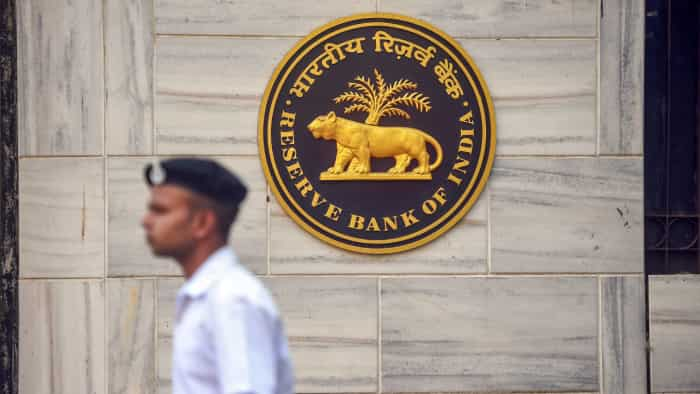RBI suspends Yes Bank's Board of Directors; SBI's CFO appointed Administrator
Yes Bank News: On account of serious deterioration in the financial position of Yes Bank, RBI has suspended the Board of Directors of Yes Bank for the next 30 days.

Yes Bank News: On account of serious deterioration in the financial position of the Yes Bank, the Reserve Bank of India (RBI) has suspended the Board of Directors of the private lender for the next 30 days. The RBI informed about the decision yesterday in a written press statement citing it has been done to quickly restore depositors’ confidence in the bank, including by putting in place a scheme for reconstruction or amalgamation. The RBI also announced to appoint Prashant Kumar, ex-DMD and CFO of State Bank of India (SBI) as the administrator under Section 36ACA (2) of the Banking Regulation Act 1949.
Informing about the statement RBI issued a press statement yesterday citing, "In exercise of the powers conferred under 36ACA of the Banking Regulation Act 1949, the Reserve Bank has, in consultation with Central Government, superseded the Board of Directors of Yes Bank Ltd. for a period of 30 days owing to serious deterioration in the financial position of the Bank. This has been done to quickly restore depositors’ confidence in the bank, including by putting in place a scheme for reconstruction or amalgamation. Shri Prashant Kumar, ex-DMD and CFO of State Bank of India (SBI) has been appointed as the administrator under Section 36ACA (2) of the Act."
See Zee Business Live TV streaming below:
The RBI press statement said that the financial position of Yes Bank has undergone a steady decline largely due to inability of the bank to raise capital to address potential loan losses and resultant downgrades, triggering invocation of bond covenants by investors, and withdrawal of deposits. The bank has also experienced serious governance issues and practices in the recent years which have led to steady decline of the bank. The Reserve Bank has been in constant engagement with the bank’s management to find ways to strengthen its balance sheet and liquidity. The bank management had indicated to the Reserve Bank that it was in talks with various investors and they were likely to be successful. The bank was also engaged with a few private equity firms for exploring opportunities to infuse capital as per the filing in stock exchange dated February 12, 2020. These investors did hold discussions with senior officials of the Reserve Bank but for various reasons eventually did not infuse any capital. Since a bank and market led revival is a preferred option over a regulatory restructuring, the Reserve Bank made all efforts to facilitate such a process and gave adequate opportunity to the bank’s management to draw up a credible revival plan, which did not materialise. In the meantime, the bank was facing regular outflow of liquidity.
"After taking into consideration these developments, the Reserve Bank came to the conclusion that in the absence of a credible revival plan, and in public interest and the interest of the bank’s depositors, it had no alternative but to apply to the Central Government for imposing a moratorium under section 45 of the Banking Regulation Act, 1949. Accordingly, the Central Government has imposed moratorium effective from today," the RBI press statement announced.
Assuring the Yes Bank depositors about the safety of their money the RBI statement read, "The Reserve Bank assures the depositors of the bank that their interest will be fully protected and there is no need to panic. In terms of the provisions of the Banking Regulation Act, the Reserve Bank will explore and draw up a scheme in the next few days for the bank’s reconstruction or amalgamation and with the approval of the Central Government, put the same in place well before the period of moratorium of thirty days ends so that the depositors are not put to hardship for a long period of time."
From now onwards, Yes Bank depositors won't be able to withdraw more than Rs 50,000 as the Reserve Bank of India (RBI) has applied to the Central Government for imposing a moratorium under section 45 of the Banking Regulation Act, 1949. The Central Bank of India took this decision after reaching out to the conclusion that Yes Bank's inability to raise capital to address potential loan losses and resultant downgrades, triggering invocation of bond covenants by investors, and withdrawal of deposits.
Get Latest Business News, Stock Market Updates and Videos; Check your tax outgo through Income Tax Calculator and save money through our Personal Finance coverage. Check Business Breaking News Live on Zee Business Twitter and Facebook. Subscribe on YouTube.
RECOMMENDED STORIES

SBI 2222-Day Green Deposit FD vs Central Bank of India 2222-Day FD: What will you get on Rs 4,44,444 and Rs 7,77,777 investments in these special FD? Know here

Power of Rs 15,000 SIP: How long it will take to achieve Rs 7 crore corpus? See calculations to know
08:38 AM IST









 RBI imposes monetary penalty on these two banks, check details
RBI imposes monetary penalty on these two banks, check details D-Street Newsmakers: Yes Bank, Tata Motors among stocks that buzzed most on November 16
D-Street Newsmakers: Yes Bank, Tata Motors among stocks that buzzed most on November 16 Yes Bank introduces UPI payments through its RuPay credit cards; Know how it works
Yes Bank introduces UPI payments through its RuPay credit cards; Know how it works Yes Bank Q1 Results: Bank's net profit rises 10% to Rs 343 crore; total income jumps 29%
Yes Bank Q1 Results: Bank's net profit rises 10% to Rs 343 crore; total income jumps 29% RBI rejects appointment of Akash Suri as CEO of Yes Bank-JC Flowers ARC: Sources
RBI rejects appointment of Akash Suri as CEO of Yes Bank-JC Flowers ARC: Sources